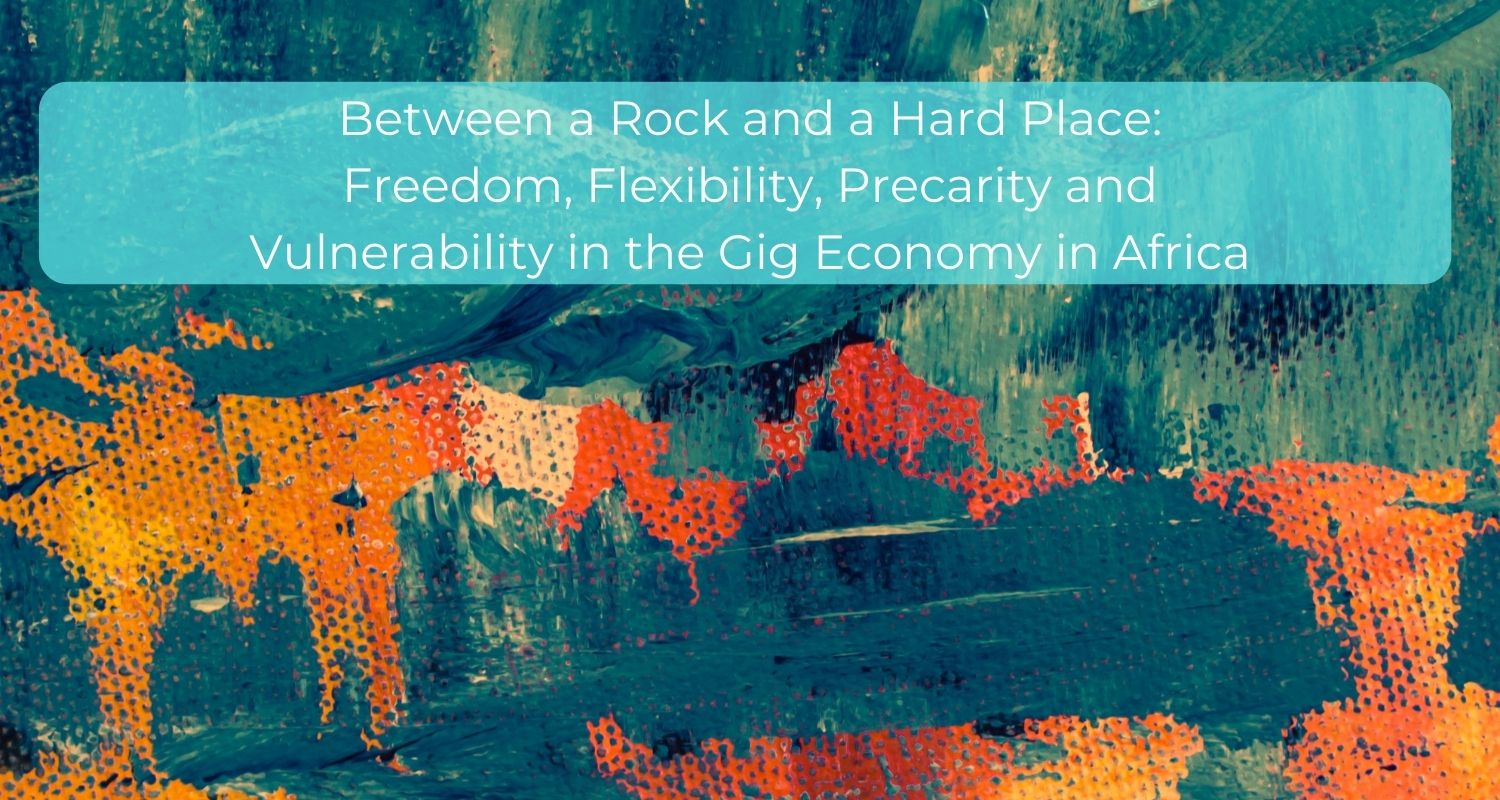

Summary contributed by our researcher Alexandrine Royer, who works at The Foundation for Genocide Education.
*Link to original paper + authors at the bottom.
Overview: This paper lays out the on-the-ground realities of freelancing digital workers in Africa and points to how the growth of the digital gig economy is reinforcing the asymmetrical global division of labour.
For many among us still caught in the throes of a global pandemic, the concept of a regular nine-to-five office job seems like a distant past. COVID 19, among its many societal lessons, has both made apparent and accelerated the digital transformation of labour, where work can continue to be conducted anywhere, at any time, so long as we have ready access to a computer and internet. While remote internet-based employment may be a new component of our lives, the advent of digitally mediated work has long-been making its mark in Africa.
Digital labour is a key part of a strategy of accelerated economic development in the Global South. Politicians, NGOs, and global economic institutions have confidently stated that participation in the digital economy can overturn decades of economic stagnation, high unemployment rates and offer profitable job opportunities for its citizens. Part of the political and economic discourse around the gig economy rests on the idea of the digital nomad, who has the power of freedom and flexibility over his work. Against this narrative, Mark Graham and Mohammad Amir Anwar point to the economic vulnerability and precarity facing digital gig workers in Africa.
The digital economy’s growth in the Global South is attracting greater scholarly attention, although there remains a limited understanding of the quality of gig employment in Africa. Anwar and Graham are among the prominent pioneers in the field. By conducting a four-year study of 65 digital gig workers employed by freelancing platform UpWork in South Africa, Kenya, Nigeria, Ghana and Uganda, Anwar and Graham demonstrate how these workers’ livelihoods is emblematic of the new digital wave reproducing the international division of labour. UpWork is a commonly used remote work platform in the Global South and the go-to for African workers. As part of their analysis, the authors consider four key dimensions to gig work: freedom, flexibility, precarity, and vulnerability.
Freelance work has garnered considerable media hype in Africa, and it is portrayed as a disruptive innovation by organizations such as the Rockefeller Foundation that will positively impact millions of Africans by providing them with a pathway out of poverty. It allows workers an escape from dysfunctional local labour markets and gives them a sense of connectivity to the wider world. Alongside the flexibility offered to firms, which can quickly meet their demand for quick digital work at lower prices, the digital gig economy appears as a win-win for employers and their employees. For Graham and Anwar, the supposed individual freedom of gig workers is part of a neoliberal discourse that masks structural inequities and the limitations posed by the algorithmic controls of digital work platforms. As part of an easily hirable yet disposable workforce, digital workers are left to bear the risks of fluctuating markets and labour demands.
Graham and Anwar refer to the work of Guy Standing, who describes the emergence of a new working class, ‘the precariat,’ which falls in the cracks of the social security net. However, they underline how African workers often seek jobs in the informal economy where standard employment relations are mostly absent; precarious work forms are more commonly the norm than the exception. In contrast to the North American and European context, gig economy jobs in Africa constitute an entry point into standardized employment. Workers find themselves subject to the organizational management strategies and reputational scoring system of freelance work platforms. While platforms like Upwork remove traditional work entry barriers, earning a successful bid for a first job can be a long and arduous process. Several workers interviewed noted that platform work paid better salaries but added that these earnings went into securing faster broadband internet. Freelance work is also subject to social stigma, particularly in Nigeria, due to the prevalence of online scamming networks. Only workers from educated and wealthier socioeconomic backgrounds benefitted from the ability to adapt their schedule and work at their own pace.
A far cry from the fulfilled and independent digital nomad, digital platform workers in Africa suffer from high stress and fatigue levels related to income insecurity and irregular working hours. Several of Anwar and Graham’s interlocutors mentioned feeling lonely and socially isolated. While gig work remained an attractive option in countries where the local job market’s constraints meant difficulties securing employment, it rarely brought the economic opportunities vaunted by politicians. Competing against workers from across the globe, Africans faced competition from low-bidding Indian, Bangladeshi, and Filipino workers, leading to a race to the bottom. Workers are at the whim of their employers, who can cease the contract without warning and refuse to pay wages if the work is deemed unsatisfactory. They must also remain glued to their screens, sometimes at all hours of the night, as Upwork will take screenshots of the worker’s laptop to ensure they keep up with the task.
Through their insightful interviews, Anwar and Graham offer a much more nuanced picture of the quality of gig work among African labourers. The on-the-ground realities gleaned from gig work tarnishes the rhetoric of freedom and flexibility in gig work pronounced by various international institutions, private firms, internet-based platforms, and nation-states. For those who have now transitioned to working from home due to global circumstances, the social isolation and psychologically damaging effects of remote work expressed by African gig workers certainly ring true. It is in the interest of governments within and outside Africa to regulate these digital work platforms, whose headquarters are stationed in North America, which clearly will not guarantee fair working conditions out of their own volition. If we want to avoid creating a global digital underclass and end the proliferation of precarious work, immediate action towards decent digital labour standards must be undertaken by policymakers from local to international levels.
Original paper by Mohammad Amir Anwar, Mark Graham: https://doi.org/10.1177%2F1024529420914473
